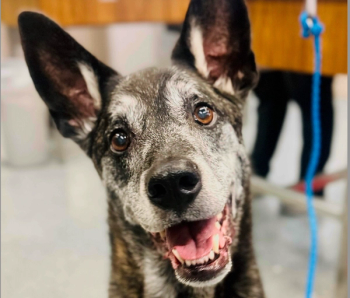
Blog: Federal regulation of veterinary school accreditation brings elitists out of the woodwork
Critics of Council on Education seek establishment of independent agency.
Few veterinarians are aware of a hearing soon to happen (Dec. 11) in Washington, D.C., that may change the shape of veterinary medicine in the United States for years to come. What's particularly interesting is how a handful of armchair advocates are working feverishly to steer this process. This blog will be the first in a series examining this phenomenon and, more importantly, to consider what's at stake.
So what's the fuss? For decades, the accreditation of American, Canadian and a smattering of foreign veterinary colleges has been administered by the Council on Education (COE), an independent agency within the Education and Research Division of the American Veterinary Medical Association (AVMA). Like its peers among health and other graduate professions, the COE is recognized by the U.S. Department of Education (DOE) as the only authorized accrediting body for veterinary professional education in the United States. Thirty domestic and a smaller number of foreign veterinary colleges have earned accreditation from the COE, contrasted with nearly 200 American veterinary technical programs and close to 150 domestic human medical schools accredited by other organizations sanctioned by the DOE.
So, still, what's the fuss? Well, a handful of veterinarians, originally 13 or so, have taken it upon themselves to urge the Department of Education to abandon the COE. These evangelists are urging veterinarians and veterinary associations around the country to join their cause and support a new federally approved agency to oversee veterinary education in the United States.
This small band of advocates represents an odd coalition of elite Ivy League school progeny, a tiny sample of large land grant schools and a cohort of advocates for reducing the number of veterinarians in America to protect veterinary incomes and, unfortunately, reduce the quantity of veterinary care available for a pet-owning public that already finds fewer than one out of two pet owners seeking veterinary healthcare for their pets.
Today's blog and those that follow over the next weeks will examine this ideological mission to return veterinary higher education to a circa-1960s elitist, highly traditional, anti-innovative, one-size-fits-all model and, frankly, ignore the needs of pet owners and animal welfare throughout the United States.
Whether these critics can persuade the federal government in December remains to be seen, but in this blogger's view, their proposed regime has nothing to offer the 21st century nor the needs of companion and farm animals on whom we depend, not to mention veterinarians and veterinary students. Stay tuned.
Mark Cushing, JD, is founding partner of the
The Veterinary Policy Notes blog on dvm360.com helps veterinarians and other animal health professionals keep abreast of the growing number of issues, political challenges and regulatory initiatives affecting the veterinary profession, animal health industry and animal welfare movement.
Newsletter
From exam room tips to practice management insights, get trusted veterinary news delivered straight to your inbox—subscribe to dvm360.






